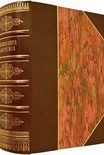Sarah Phillips Andrea Lee (classic english novels .TXT) 📖

- Author: Andrea Lee
Book online «Sarah Phillips Andrea Lee (classic english novels .TXT) 📖». Author Andrea Lee
It was not that I had really feared being stolen: it was more, in fact, that they seemed to have stolen something from me. Nothing looked different, yet everything was, and for the first time Franklin Place seemed genuinely connected to a world that was neither insulated nor serene. Throughout the rest of the summer, on the rare occasions when a truck appeared in our neighborhood, Lyn and I would dash to see it, our hearts pounding with perverse excitement and a fresh desire for alarming knowledge. But the Gypsies never came back.
Marching
Sometimes the suspicion crossed my mind that all adults belonged to a species completely different from my own. One was never quite sure what they cared about, just as it was hard to tell why they laughed, and what kind of laughter it was. The eye of a grownup, like that of a cat or a praying mantis, seemed to admit a different spectrum of light. Compared to my world—a place of flat, brilliant colors, where every image was literal, and a succession of passions grabbed my soul with forthright violence—the atmosphere in which my parents existed seemed twilit, full of tricky nuance.
My father, especially, could be quite confusing. Once, when my family was visiting New York, and Uncle Freddy, who was a lawyer for the NAACP, was taking Daddy, Matthew, and me on a tour of Harlem, Daddy began to talk in a high, affected voice.
“Look at the tenements and the trash!” he said. “I’m awfully glad I’m not a Negro, aren’t you, Frederick?”
“Oh, yes,” said Uncle Freddy in the same kind of voice. “I wouldn’t like to be a Negro!”
“But they don’t mind the mess as we would,” said Daddy. “Negroes are jolly people.”
“They’re the Happy People!” exclaimed Uncle Freddy, and the two brothers chuckled together, on an odd note. They looked alike as they laughed, though Uncle Freddy, younger, slimmer, more urbane, browner-skinned than my father, with a pair of pale eyes that were like a jolt of electricity in his dark face, was the handsomer of the two.
In the back of the car, I sent a look that was a question over to Matthew. The year was 1959, and I was six and Matthew was nine, and the car was a black Packard with seats of a green and yellow strawlike weave that lit up with a rustic sparkle in the late-spring sunlight. “They’re joking, silly—pretending to be white,” whispered Matthew. I said nothing, but bent my face into the breeze from the open window and peered at the ruinous streets around us, wondering at the complicated twists in grownup funny bones.
Daddy taught Matthew and me to stick out our chins and say “Negro” with near-military briskness when we spoke of ourselves in the classrooms of our Quaker school, and occasionally he brought home for us stacks of books filled with the strenuous exploits of heroic slaves. When he wasn’t preaching sermons, or visiting his parishioners from the New African Baptist Church, he seemed to spend his time in rooms full of men with dark suits—rooms in which the words “civil rights,” constantly spoken, took on such gigantic significance that they seemed to be about to emerge from the clouds of cigarette smoke like the title of a Cecil B. DeMille movie. Yet sometimes, when Daddy was sitting quietly with my mother in the evenings, he would talk unflatteringly about Negroes, referring to them as we, or us. “Yes, that neighborhood has gone downhill, now that we have moved in,” he would say. “There’s nobody like us for spoiling a community.” And once, when Mama was urging him to make some changes in the garden of our house, he looked at her and said in a withering voice, “You seem determined to make the house vulgar. Do you want it to look like it belongs to a colored man?”
When Daddy and I visited Washington in July of 1963, everything was white stone and concrete, and the monuments radiated heat like white-hot stars. Mama was in Europe, and Matthew was braiding lanyards and winning swimming prizes at a Baptist camp in the Poconos, and I experienced the unspeakable, nearly monstrous joy of monopolizing my father. We stayed in a tall, cool brick house that belonged to a trio of elderly ladies, cousins of my father’s. They all had heads of tiny serpentined gray curls, and crocheted edges around their washcloths; they fixed paralyzing meals of greens and ham and biscuits, and called Daddy by his middle name. The house had shining floors, and many glass doors that opened in on airless rooms; over the mantelpiece of an unused fireplace filled with copies of Ebony hung a portrait of my great-great-grandfather, a bony, austere-looking free mulatto named Amos Twist. The little girl who lived in the house next door was named Jody, and was a relative in some way. She had long buff-colored hair strained back in such tight braids that her eyes seemed to bulge from their sockets. She called her bicycle Lancelot; we spent the simmering afternoons riding up and down the pavement screeching at each other. I was absolutely happy.
Some developing project kept Daddy downtown all day, and when he came back for dinner





Comments (0)